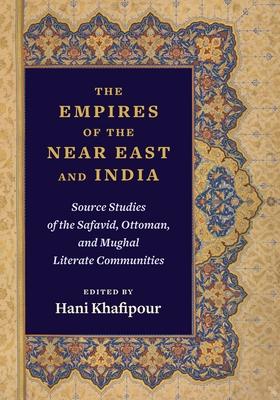In the early modern world, the Safavid, Ottoman, and Mughal empires sprawled across a vast swath of the earth, stretching from the Himalayas to the Indian Ocean to the Mediterranean Sea. The diverse and overlapping literate communities that flourished in these three empires left a lasting legacy on the political, religious, and cultural landscape of the Near East and India. This volume is a comprehensive sourcebook of newly translated texts that shed light on the intertwined histories and cultures of these communities, presenting a wide range of source material spanning literature, philosophy, religion, politics, mysticism, and visual art in thematically organized chapters. Scholarly essays by leading researchers provide historical context for closer analyses of a lesser-known era and a framework for further research and debate. The volume aims to provide a new model for the study and teaching of the region's early modern history that stands in contrast to the prevailing trend of examining this interconnected past in isolation.

The Empires of the Near East and India: Source Studies of the Safavid, Ottoman, and Mughal Literate Communities
In the early modern world, the Safavid, Ottoman, and Mughal empires sprawled across a vast swath of the earth, stretching from the Himalayas to the Indian Ocean to the Mediterranean Sea. The diverse and overlapping literate communities that flourished in these three empires left a lasting legacy on the political, religious, and cultural landscape of the Near East and India. This volume is a comprehensive sourcebook of newly translated texts that shed light on the intertwined histories and cultures of these communities, presenting a wide range of source material spanning literature, philosophy, religion, politics, mysticism, and visual art in thematically organized chapters. Scholarly essays by leading researchers provide historical context for closer analyses of a lesser-known era and a framework for further research and debate. The volume aims to provide a new model for the study and teaching of the region's early modern history that stands in contrast to the prevailing trend of examining this interconnected past in isolation.